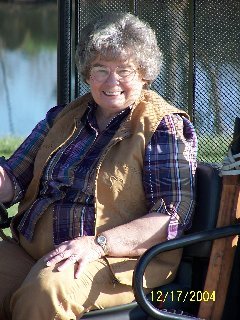Last Sunday night late when I drove home from Katherine’s, it was raining heavily. I enjoyed driving through it because I remembered son-in-law Brian at lunch expressing the wish that we’d soon get more rain to insure the water supply for next year’s crops. I knew how happy this rain was making him. And how it was increasing our future income.
Despite that knowledge of our need for rain to break the summer’s drought, I was somewhat surprised this week to see the newspapers full of concern that the mighty Mississippi River might soon be too low for river traffic unless some plans were changed over in
All my life from childhood on, the worries I have heard about this river were the floods. I remember with personal pleasure that our neighbors across the street had their relatives move in when the river overflowed. The pleasure to me was that one of the older cousins there providing me with a new chum that summer. Repeated floods for two or three years brought refugees into our small town. Stories abounded of the hardships families faced when they moved back to mud-filled hosues. After those years, visits to the
The first farm we lived on after we married was protected from the river by a levy that we drove down to get to our home. The first night there I had a nightmare about driving on that levy, which was scary to me when the water rose up on the river side. When the river was down, we were able to go over in a pickup to picnic in the woods on the river side.
After we moved away, we still were concerned when floods threatened because we had friends and family whose lives would be affected. When our granddaughter Tara was a little girl, we would sometimes take her on Sunday afternoon outings while her daddy was away at his lodge in
In recent years, we have been made aware of the dangerous deterioration of the levies protecting that part of the state. One of the teachers, Jamie Nash-Mayberry at Shawnee High School near Wolf Lake not only made the students realize the danger, but for two or three years, she has engaged them to try to correct the serious situation there. Those kids are the reason I know about the deterioration—they made sure all the media outlets became involved. They wrote Oprah. They wrote their representatives and everyone else they could think of. The Corps of Engineers and legislators met with the kids in a public meeting.
We held our breath when floods were so serious that citizens of
I was very impressed with this activist teacher and all she has accomplished with public awareness, but the danger remains and the levies are still in poor shape because of lack of money. I hope to meet Jaime Nash-Mayberry someday. Most of all, I hope funds become available to do what needs to be done to save land, crops, homes, and families from floods.
Now suddenly this week I learn that the danger to the river now is not flooding but drying up. As the saying goes, if it is not one thing, it’s another.
Just found this on Internet but haven’t time yet to read through it: http://www.shawneedistrict84.com/.












No comments:
Post a Comment